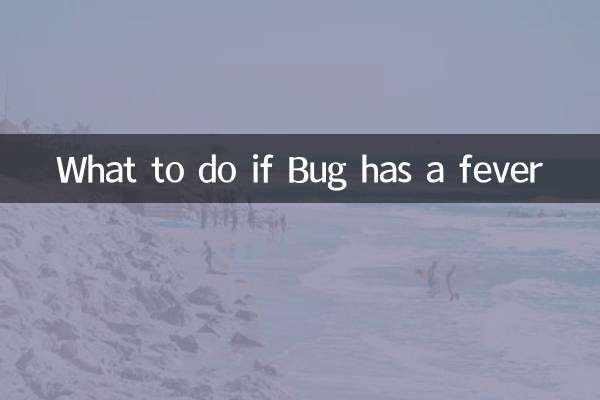What to do if Teddy vomits after eating grass
Recently, pet health issues have become one of the hot topics, especially the case of Teddy dogs vomiting after eating grass, which has caused widespread discussion. This article will combine the hot content on the Internet in the past 10 days to provide you with a detailed analysis of the causes, countermeasures and prevention methods of Teddy vomiting after eating grass.
1. Common causes of teddy vomiting after eating grass

According to veterinary experts and pet bloggers, teddy vomiting after eating grass may be caused by the following reasons:
| Reason | Proportion | Typical symptoms |
|---|---|---|
| gastrointestinal upset | 45% | Slight vomiting, normal appetite |
| Eating poisonous plants | 25% | Frequent vomiting and listlessness |
| parasitic infection | 15% | Vomiting with diarrhea |
| Other diseases | 15% | persistent vomiting and fever |
2. Emergency measures
If your Teddy vomits after eating grass, you can refer to the following steps:
1.Watch for symptoms: Record the frequency of vomiting, the characteristics of vomitus and the dog’s mental state.
2.fasting food and water: Stop feeding for 4-6 hours to avoid gastrointestinal irritation.
3.Moisturize a little: If vomiting does not persist, provide a small amount of warm water.
4.Check the mouth: Check if there are any remaining grass blades or foreign matter.
3. When do you need medical treatment?
According to pet hospital data, the following situations require immediate medical attention:
| red flag | Possible reasons | Urgency |
|---|---|---|
| Vomiting more than 3 times in one day | Acute gastroenteritis/poisoning | ★★★★★ |
| Vomit with blood | Digestive tract damage | ★★★★★ |
| With diarrhea/fever | viral infection | ★★★★ |
| Refusal to eat for more than 24 hours | serious illness | ★★★★ |
4. Preventive measures
1.Diet management: Make sure your dog’s food is nutritionally balanced and avoid feeding human food.
2.Regular deworming: Carry out internal and external deworming every month to prevent parasitic infections.
3.Clean environment: Clean up weeds in the yard promptly to avoid contact with poisonous plants.
4.behavioral training: Correct grass-eating habits through training.
5. Answers to hotly discussed questions among netizens
Based on social platform data in the past 10 days, the 5 most concerning issues have been sorted out:
| question | Expert answers | Attention |
|---|---|---|
| Why does Teddy like to eat grass? | Possibly fiber deficiency or self-induced vomiting | 82% |
| Can I give probiotics after vomiting? | You need to fast first, and you can take a small amount after the symptoms are relieved. | 76% |
| Which plants are poisonous to dogs? | Lily, rhododendron, narcissus and other common plants | 68% |
| What pet medicines should be kept at home? | Probiotics, montmorillonite powder, anthelmintics | 59% |
| How to distinguish between ordinary vomiting and sick vomiting? | Observation frequency, accompanying symptoms and mental status | 53% |
6. Expert advice
1. Regular physical examination: Comprehensive physical examination at least once a year, and once every six months for Teddy over 6 years old.
2. Scientific feeding: Choose professional dog food suitable for the age group and avoid changing it at will.
3. Emergency preparation: Keep a pet first aid kit at home and record the contact information of the nearest pet hospital.
Through the above analysis, we hope to help Teddy owners better deal with vomiting after eating grass. If symptoms persist or worsen, be sure to seek medical treatment promptly and do not delay treatment.

check the details

check the details